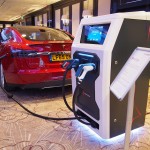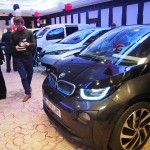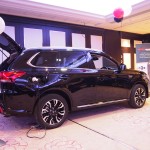When London’s Source East network of slow chargers was sold to Bolloré, many saw it as the demise of London’s electric vehicle network and for several key reasons. The first was Bolloré were understandably hoping to mimic their Parisian success with a new London based AutoLib – a hugely successful electric car sharing service.
The service, however, relies on parking being possible around the city and in Paris the company was able to attain this relatively quickly. The result is a car sharing service where parking spaces can be reserved and drivers belonging to the scheme can park fuss free.
Back in London, things are a little different with the usual legislative setbacks causing the French firm a bit of a headache. They have made some success with many boroughs but not all, which has delayed proceedings and the roll-out of any real development or maintenance on the existing infrastructure.
The net result of all these behind the scenes on-goings is a network running at around 89%, according to figures provided by TFL’s Lilli Matson. However, with 11% of charge points either out of action, damaged or simply offline, for the electric car driver it is a bit of a lottery whether they’ll be able to charge or not.
Chargemaster, a Luton based company, has entered the ring swinging, stating they will replace any non-operational charge point free of charge to the local borough. POD Point has offered a similar and gained more than 500 signatures on a petition to, “Fix London’s Chargers”. Both have been seen as attempts to get a foothold in London and to introduce their networks into the capital city – no bad thing considering the current monopoly held by Bolloré – while others applaud their company aims to deliver a 99.9% reliable charge point network and aid electric car sales and ownership.
However, separate to this, Chargemaster has announced they will install no less than 30 rapid charge units in the capital. The new network will add what the company sees as essential infrastructure to cope with the increase in demand for electric vehicles.
The announcement was made by Chargemaster’s Founder and Chief Executive, David Martell, at London’s Lancaster Hotel alongside a host of talks by TFL, Qualcomm’s Simon Arbuthnot on their Halo wireless charging system, Professor John Miles, Cambridge University, about Autonomous Vehicles, Oliver McCrudden, FIA Formula E Event Coordinator, about the FE Championship and London ePrix and finally Andrew Jones MP, the Parliament Under Secretary of State for Transport.
Chargemaster openly criticised Bolloré’s handling of the Source East takeover and their maintenance of the network, which was somewhat refuted by TFL speaker Lilli Matson.
As for plug-in hybrids, the company sees an increase in demand needed at so called “destination” charge points, for example at hotels and restaurants where many park for extended periods of time. To this end, the company has several deals in the works with hotel chains around the country.
Chargemaster currently has the largest network of electric charge points in the UK with around 4,000 charge locations.
However, Chargemaster has lived up to its name in more ways than one with many drivers criticising their pricing plans that are seen as more expensive than petrol or diesel. There was no comment as to whether the new rapid London network will be made available for free nor which charge points will be used.
Last year at the 2015 Low Carbon Vehicle Event held at Millbrook Proving Ground, Chargemaster showed off its latest generation of rapid charger. The significantly updated design has several key features including a compact design that can eliminate the need for planning permission altogether and thus speed up the speed of installation and lower cost. The compact unit has the three major standards for rapid charging, with cables on an internal reel that helps keep things neat and tidy. The Ultrachargers can also support numberplate recognition, RFID cards or even a contactless payment card (VISA/Mastercard), with the latter meaning there is no pre-planing necessary to be able to charge up.



